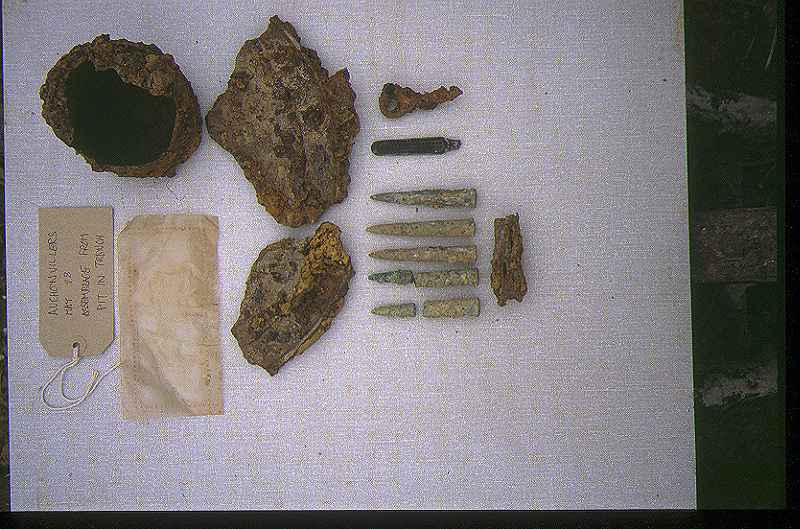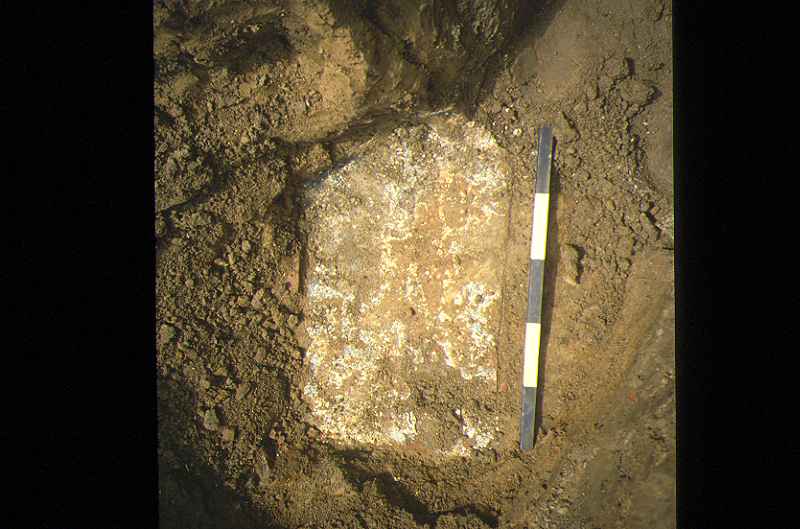
Finds assemblage
from large sump, including end of bone toothbrush, and faceplate from Hypo
gas helmet.
|
Finds 1998Finds taken from the excavated length of trench, from cleaning back the sections, and from emptying out the sump fell into four categories:The first two categories of finds were excavated from contexts within phase E. (This was destruction debris which was used to fill in the trench.) The household debris is likely to be contemporary with the destruction of the original buildings, the French equipment may have been within the buildings when they were destroyed, or discarded on the surface around the trenches during their first phase of occupation. The British equipment was concentrated in the same phase and must therefore represent material discarded on the surface around the trenches during their occupation and use. Some equipment was found within phase C, after the trench had gone out of use. The assemblage from the sump included a charger of unfired .303 rounds, the head broken off a horn toothbrush, fragments of a tin plate, a food can, and the celluloid face plate from a Hypo gas helmet. Because the stratigraphic link between the fill of the sump and the lowest fill of the trench was lost during the uncontrolled excavation it is not possible to say whether the assemblage is linked to the other military equipment found within phase C, or whether it represents a loss during the period of usage of the trench, associated with a deliberate infilling of the sump. |
